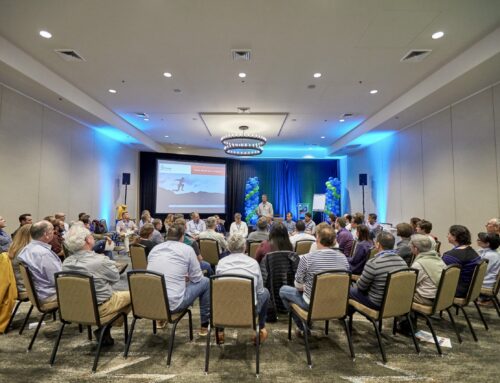We have a few meetings weekly, and so far none are really productive, resulting in a huge emotional response from several folks. How can we change the emotional memory so that these meetings become productive?
Research has shown that physiology is critical to our state of mind and that the complexity of the human condition requires us to address the physical self in addition to the mental state. Some suggestions and things to try — these are very simple and they will work. I have seen this work for 23 years EVERY TIME.
> Do not let people sit in the same seat for each meeting or for more than 30 minutes at one meeting. They become territorial of their seat and their ideas. Standing is preferred when brainstorming or when you would like to have open dialogue. Be sure ALL seats feel like they are just as important as the next, and that each person can see and be heard. If you are going to allow sitting, then every 15 minutes have people move to a new seat. I am not joking… this will work, and they will smile, move, engage, and feel better without you even trying. They might resist this the first time, but then they will begin to prepare for the switch and move past the resistance.
> Never promise to have the meeting over in “X” amount of time so that we can all get back to work. WHAT?! I have seen so many meetings start this way. Start each meeting with a STAND. Make a strong stand for what you expect the value from the meeting will be and why you need them engaged. Example: “Thanks for being here team. I am thrilled we have this time together and hope we have enough time to fully understand the value of this presentation to our success. We will be going over the financial today and you all know how important this information is to our ability to project the next business move and make our life easier. I value each of your input and perspective and I invited you to be here because I am convinced we can grow our business if each of us fully understood this data.” You get the idea. Make it sound good to be at the meeting and make a big promise and then deliver. If the leader is not passionate about the meeting then the team will follow.
> Listen very carefully to the “Beliefs of your team.” When you hear a negative belief, you need to identify the belief in a non-threatening way and then go to work to change it. Example: I am… People are… Life is… This meeting is… This team is… My boss is… This project is… and so on. Beliefs influence focus, and that creates reality for people. If people say, “My boss is great,” then they will see things that support that belief. If I love the rain, then when I hear it raining in the morning, I am already happy and my mood is up. If people believe this meeting is a waste of time, then they will be very slow to see anything else.
> The huge emotional response is actually a good thing. Change your belief about it. They have emotion because they still care and they want it to be better. If you get to a point that you no longer see emotion, then people are becoming apathetic and they will not work to improve the situation.
-Lain Hensley






Leave A Comment
You must be logged in to post a comment.